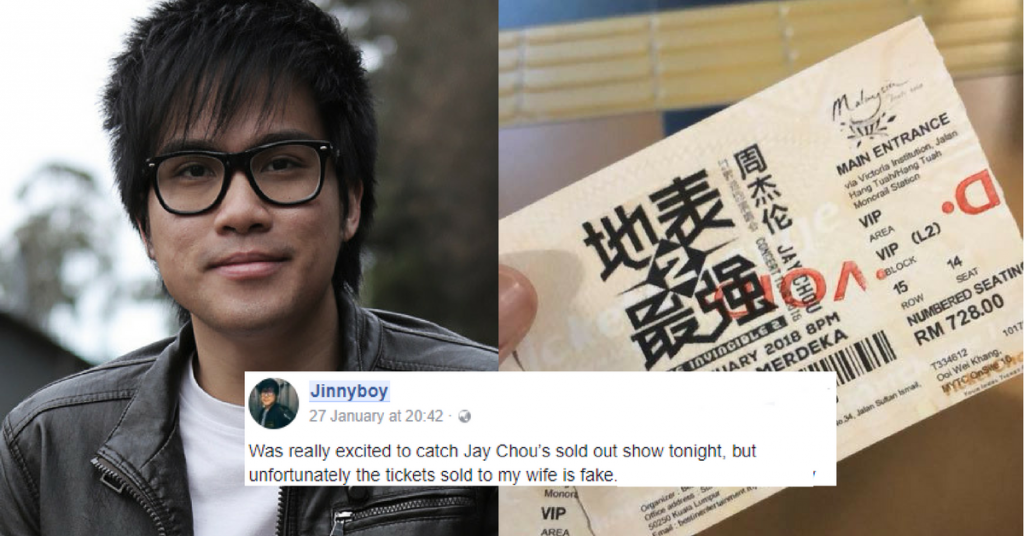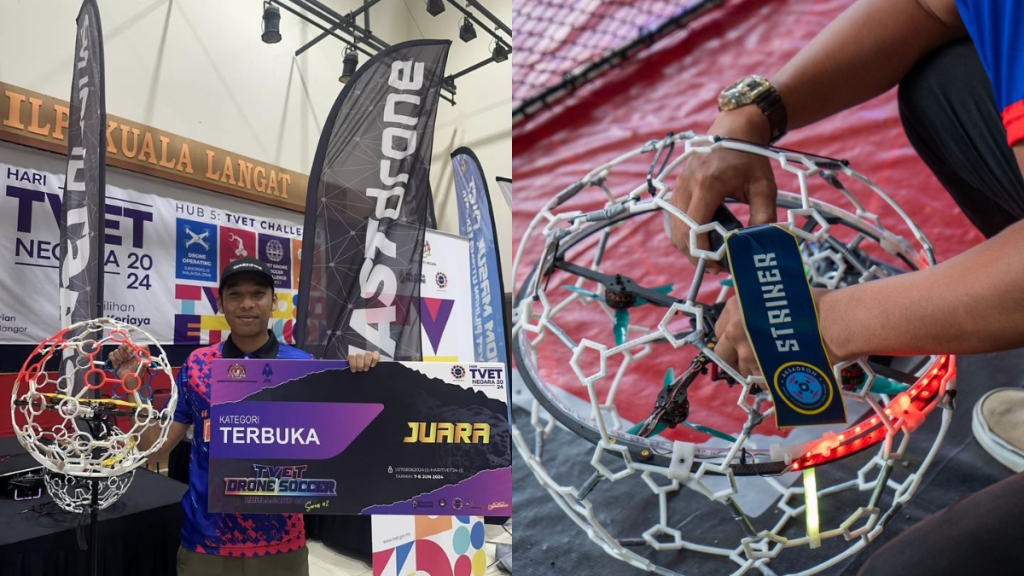- Ticket fraud and scalping runs rampant in Malaysia, with innocent Malaysians getting conned out of their hard-earned money.
- It’s a rife scene for disruption here.
- Overseas, we’ve seen facial recognition technology, or paperless tickets being used to solve similar issues.
Over the weekend, Jinnyboy faced some struggles that many Malaysians will be all too familiar with. He bought tickets online for a Jay Chou concert, only to discover that he had been duped out of RM1,500.
In a Facebook post recounting the incident, Jinnyboy called for a better system to sell tickets, and more education for fans on what real tickets look like.
It’s a pressing concern, and just one branch in an increasingly problematic industry.
After all, we know of ticket scalpers who use bots or inside connections to scoop up tickets within a few seconds, only to sell them online for exorbitantly higher prices. I’m still sore about those Ed Sheeran tickets last year.
These ticket swindlers are able to make ridiculous amounts of money gaming a system that is increasingly ineffective at stopping them—all at the expense of fans and the music industry as a whole.
In the case of Ed Sheeran tickets, scalpers were selling them at RM8,000 even though the most expensive tickets originally sold for RM458.
Most outrageously though, was when scalpers were spotted reselling the limited In-N-Out burgers from a popup in Petaling Jaya last week, some even going up to a whopping RM100.
Ticket selling in Malaysia seems like a rife industry for disruption.
Fortunately, this is not a unique problem to Malaysia, so there is the possibility of looking elsewhere for real-life solutions.
Actual results, however, can be problematic. But here are 4 solutions that have been tried and tested elsewhere that perhaps could inspire something here.
1. Japan’s facial recognition technology

If you thought getting tickets in Malaysia was hard, wait until you get to Japan. To even qualify for tickets, you have to join a music act’s fanclub—and even then, you’ll only get a chance at buying tickets if you’re chosen as one of the lucky raffle winners.
As one can imagine, ticket scalping is a serious business there.
Therefore, since 2014, the Japanese music scene has slowly adopted a facial recognition technology that requires fans to submit their photos during the ticket-buying process.
That being said, concert organisers might find the technology expensive, which limits adoption rates. And any human errors inputting photos could prevent real fans from entering a venue, as well as not solving issues of ticket resells.
2. Ticketmaster’s Verified Fan System
This is a system that is gaining traction in USA, similar to how Japan’s fanclub system.
Unfortunately, what is a good idea has easily been corrupted by companies that want to have their cake and eat it too.
How the Verified Fan System works is this: you register for a concert, and the company’s algorithm scours through your identity to determine whether you’re a scalper, reseller, or true fan.
You’ll only be given a unique code to buy tickets once you’ve been “verified” by the company. How that’s determined is based both on Ticketmaster’s evolving algorithm, and other rules that are set by the artist’s agency.
This way, more actual fans are given a chance at buying tickets, and it reduces the chances of fraud too.
The downsides? Thanks to an algorithm that’s still improving, many real people are prevented from buying tickets for seemingly arbitrary reasons, which defeats the purpose of having a verified fan system in the first place.
For Taylor Swift’s massively competitive Reputation tour, fans get a better shot at actually getting codes if they “collect points”—which can be done either through watching videos, buying merchandise, or even pre-ordering albums.
3. Ticketmaster Presence

Instead of paper tickets, Ticketmaster Presence sends digital passes to a concertgoer’s mobile. So rather than using laser scanners to identify tickets, users ‘tap and go’ using mobile devices or smartwatches that they’re bringing anyway, or using a wallet-sized smart ticket with a built-in unique ID chip.
One added bonus is that fans are able to transfer their tickets or even sell their tickets directly on the app, which seems to solve the issue of fake ticket sales, while still letting fans resell their tickets if they’re unable to make it.
Meanwhile, concert organisers can get a real-time report of attendance, which seems like a win-win all around.
There are also international startups looking to solve this growing problem.
4. Citizen Ticket
Citizen Ticket is a UK-based startup that wants to ensure all transactions are recorded publicly and permanently. They use a ticket delivery system called BitTicket, which allows the life-cycle of a ticket to be tracked.
How this is done is… oh look, it’s Blockchain again.
This way, touting, fraud and unregulated resales are made more visible. In fact, if resale rules are broken—say by reselling on secondary ticket website or scalpers—users accounts can be frozen and tickets made invalid.
It also has inbuilt anti-fraud sales rules to ensure that no secondary ticket website can hoard tickets to control the supply that allows them to charge inflated prices. If the resale rules are broken by secondary ticket websites or ticket touts (scalpers), the fraudulent accounts are frozen and the tickets are made invalid.
###
The hope is that by compiling this list, some Malaysian startups might get ideas and choose to adapt some international solutions for our local scene. It won’t be the first time a Malaysian company has done so.
Frankly in this case, I’m happy for it to happen if it means just one more concert in Malaysia can be had with minimal fraud and scalpers.
I think we deserve at least this, Malaysia.
Feature Image Credit: Jinnyboy














